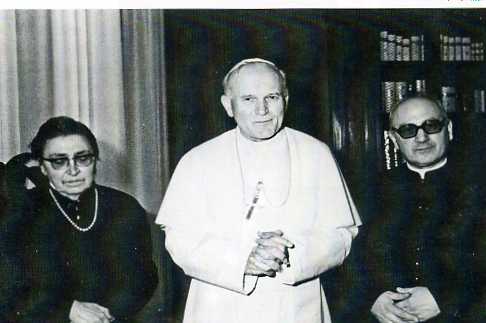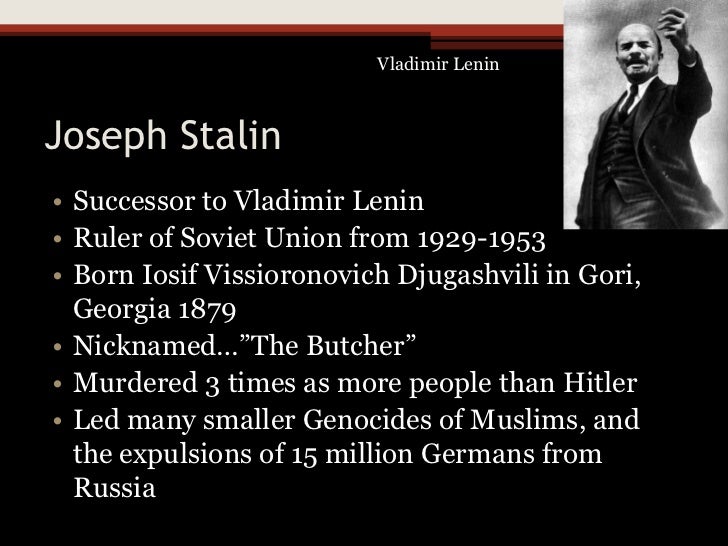Translate
Friday, February 6, 2015
Sunday, February 1, 2015
Maria Teresa Carloni Catholic Mystic

Her rearing methods clashed with the stormy temperament and iron will of her granddaughter and were a source of constant conflicts between them. The child developed a great need for love, but, interestingly enough, to impart it rather than receive it.
“When I was five years old, I was already dreaming about love. I would fall asleep, clasping my ugly doll in my arms. I wept, feeling I was its mother….That doll helped me to understand that one had to suffer and love, and never ask for anything in return.”
In her zealous concern for her charges, Maria Teresa’s grandmother failed to notice that there were members among the domestic staff who could scandalize or lead them astray by their immoral attitudes and conduct. Little Maria Teresa had no one to whom to disclose the doubts they sowed in her mind. Nor did her confessors rise to the task; they pooh-poohed her concerns as childish scruples. This situation poisoned the girl’s First Holy Communion Day: she thought she had received Communion sacrilegiously. She loved the Eucharistic Jesus, but feared Him. She feared the priests, confession, and religious practices.
Suicidal thoughts tormented her. At age seventeen, she decided to make a general confession, but as luck would have it she hit upon a totally unsympathetic confessor. She fled the confessional. On running out of the church, she looked back at the crucifix behind her and JESUS spoke a parting promise:
“We shall meet again...”
And so indeed she did, but her return to the Crucified Jesus would involve a long and arduous spiritual journey.
She spent the years of WWII studying in Rome and engaged in nursing work, to which she devoted herself totally. All this time, while not practicing her faith herself, she prayed and mortified herself heroically for the conversion of the wounded and dying. “What could I do—she wrote—a poor branch cut off from the Vine? Sleepless nights on the cold floor by the sick, who died anyway, benighted and rebellious! It they could have known at least a measure of peace! For whole months I forgot all about sleep. I spent the nights in the empty chapel, lying cruciform before the Blessed Sacrament. What did I pray for? For myself nothing, for I did not count myself among the living. I prayed for those who had not yet been brought into the Church.”
Nowhere could she find spiritual peace. A priest once told her that since she did not attend Holy Mass or receive Holy Communion, her actions were of no use at all.
“No one told me God was merciful. No one gave me a spark of hope that I could ever rise from my misery… I felt the more I gave of myself to God, the more I loved him.”
While working in the hospital during the war, she met a young, dedicated doctor to whom she became deeply attached. Alas, misfortune befell her again. One evening after curfew, while the two of them were walking to the hospital for night duty, a patrol stopped them. Before they could show them their passes, a policeman fired at the doctor. Maria Teresa tried to take the wounded man to the hospital, but he died on the way. With him died all hopes of her ever finding marital happiness.
When the war was over, Maria Teresa was twenty-six years old and had no real idea of what to do then. She completed pedagogical studies, but teaching did not agree with her. She preferred to devote herself to nursing. Everything she undertook, she wanted to carry out with a passion. He life’s motto was...
“Either all, or nothing; I have done everything possible, and what is not possible, I will yet do.”
Maria’s family did not think much of her desire to pursue a nursing career; they wanted to find a husband for her. At this time, Maria’s brother, who already had a family, moved out of Urbania; at the same time, her grandmother fell seriously ill. Maria Teresa sought to bring the dying woman closer to God. Since an enlightened priest would prove helpful in this task, she turned to her pastor, Monsignor Cristoforo Campana, who took the sick woman into his spiritual charge. Maria’s grandmother died peacefully in May of 1951.
Maria Teresa found herself completely alone—and at a crossroads. Thoughts of taking her life besieged her again.
“Crushed by all of this,” she later confided, “utterly exhausted, and beset by the fear that I would die having accomplished nothing of any worth, I got up the nerve, in a desperate act of the will, to make one last-ditch attempt at going to confession. Vowing that it was now or never, I prepared myself for a whole week through intense prayer and strict acts of self-denial.
Strange to say, I realized at once that this desperate act of will was also a grace. My pastor did not push me away, when I made my confession. He expressed no surprise; nor did he condemn me. The sixteen-hour-long confession, which was carried out in three stages, enabled me at last to cast off my heavy burden and restored my peace of mind.”
After this, other confessions followed. Msgr. Campana soon realized that his Maria was seeking a more profound spiritual life, rigorous penitence, self-sacrifice, and a deeper union with God. She expressed a wish to take a vow of chastity, but the confessor held back his consent, since Maria Teresa was young and very beautiful; in the end, however, he gave his permission. Against the wishes of her relatives, Maria Teresa went to work as a nurse at the St. Camilla Foundation in Milan; however, she remained in constant contact with her spiritual director in Urbania, informing him in writing of all that was happening to her.

In early 1952, her letters began to relate new events in her life. At times she became totally indifferent to the world around her. At the same time, she began to feel within her the presence of another person, who spoke to her. This happened on Tuesdays and Fridays. At times, the interior voice became so intense that she had to closet herself in her room, so that others would not notice what was happening to her. The “voice” would speak, and she would answer.
When, after completing her work at the St. Camilla Foundation in Milan, Maria Teresa returned to Urbania, Msgr. Campana came to witness these states of his spiritual charge himself. He bade her write down everything the ‘voice” imparted to her. This is how he described the course of her mystical dialogues, of which he himself was a witness:
“When she spoke to me, I saw her half-close her eyes. Seeming no longer present to me, she would hold talks with “someone” whom I could not see, but who was present in her imagination. This went on for fifteen or thirty minutes, and then everything returned to normal. The dialogue would always have a spiritual character and proceed in total conformity with the teachings of the Church. It was a call to an ever more intense love of God and expressed in the first and second persons: ‘I’ and ‘you.’”
The ‘voice” also gave instructions to the spiritual director, always by way of Maria Teresa. In March of 1952, he received the following locution:
“‘I wish to repeat my passion in this soul. You, being her spiritual father, may accept this or reject it, since you wield authority in my name; but know that this is my will.’ ‘But who are you?’ I asked, as if I did not know Who it was. ‘I am Jesus’—I heard in the confessional. ‘This soul has offered herself to me, and I have accepted her offer.’”
Wanting to be certain that Maria Teresa fully understood and was ready to do the will of Jesus, the confessor asked her if she was agreed that union with the Lord meant union with His passion. Maria Teresa replied...
“If this is what He wants of me, then I am ready.”
From then on, every Friday between twelve and three o’clock in the afternoon, she partook in the three hours of Christ’s agony on the cross. At her confessor’s bidding, she underwent an examination by a psychiatrist, who found nothing abnormal in her. In the fall of 1952, Maria Teresa received the stigmata.
Two months later, the “voice” told the confessor to take Maria Teresa to an empty chapel in the church for the celebration of spiritual nuptials. When she knelt before the altar, she heard:
“Jesus agrees to be the Groom, but He desires His bride to be like Him: she will be persecuted, abused, and slandered. She will suffer in body and soul.
When people hold her up to ridicule, God will accept her as a most precious soul purchased and offered up as payment, so that many souls may enter heaven.”
To the confessor, Jesus addressed these words:
“Go to the altar, take the gold ring that lies under the cloth, and put it on the finger of my bride, as a visible sign of my nuptials.”
The priest did as he was told: under the altar cloth by the tabernacle, he found a gold ring, which he had never seen before. He placed the ring on Maria Teresa, saying:
“This is not from me. Someone is giving you this ring as a sign of His union with you.”

Maria Teresa chosen by GOD, and prepared through much suffering, for the great mission that she was to carry out for the Church.
How did this mission begin? Here we turn to the words of Maria Teresa’s confessor: “On January 4, 1953, there died, in Russia, Ivana Pushkin, the granddaughter of the great Russian poet. She had secretly avowed the Catholic faith, organized the underground Church, and offered up her life for the salvation of Russia by consciously interceding for the soul of Stalin, the enormity of whose crimes appalled her.
One Friday afternoon during Maria Teresa’s three-hour agony, I was informed of this woman’s death. I was instructed to ask Maria Teresa if she were prepared to accept the sacrifice in the woman’s stead, along with all the consequences of sacrificing oneself for Russia and the countries it dominated, and upon which it imposed the doctrine of atheistic materialism.
I asked her this even before her three hours of agony were over. She told me, ‘If the Lord wishes this, and He gives me the necessary grace, I will agree to it.’ From then on, Maria Teresa felt her sufferings steadily increase—sufferings that afflicted her soul with great sorrow.”

“In early March,” the confessor goes on to relate, “the news came that Stalin had suffered a paralysis and was near death. The following Friday, before Maria Teresa began her three hours of agony, ‘JESUS’ said to me:
"Now I will ask something of you, if you and your Confessor will agree to it. Before Stalin dies, despite his crimes, I wish to give him the chance of salvation, just as I do all redeemed souls. If you will agree to it, I ask you to offer up these three hours for Stalin’s soul."
Maria Teresa agreed. The three hours of suffering took place as usual in the same secluded chapel. It was afternoon. Her Confessor was present the whole time. He said he shall never forget those three hours. Never again shall I see such suffering, which was also physical. I wept out of terror and wanted to cry out, ‘Enough! Enough!’”
“Did Stalin profit from this last grace?”
Msgr. Campana asks?
Stalin’s daughter Svetlana recounts his final moments in her memoirs. Though she was living in the same building in the Kremlin as her father, contact with him was extremely difficult, since Lavrenty Beria, who sought to take power after Stalin, surrounded him with a protective ring so tight that even his daughter was unable to see him. When she learned that he was gravely ill, she mustered up her courage.
After pleading, threatening, and even forcing her way through the successive guard posts, she finally reached her father’s deathbed. She knew at once his condition was very serious. Stalin was unconscious; his eyes were closed. Svetlana sat down beside him and resolved to stay there until the very end. At a certain moment, she saw the dying man open his eyes and look at her. His next breath was a ragged gasping shriek of pure terror. Then, she saw in his eyes a look of such wild horror that she went numb with fear. She knew in that instant that Stalin was lost forever in eternal hellfire... With that the great butcher of Russia Joseph Stalin was dead...
Always remember that Almighty GOD loves ALL his children. Even Joseph Stalin a man who murdered 80-100 million Russians was still, until his last breath, loved by GOD our Father in Heaven. Unbelievably, even the mass murderer Joseph Stalin was given every chance to avoid eternal Hell. At Stalin's last moments Almighty GOD was at his bedside offering Stalin another chance to repent. I personally find that AMAZING. I can not imagine what could more underline GOD'S Divine Mercy then Joseph Stalin being given the gift of reconciliation upon his death bed.
Until the very last moment of our life, God gives us every opportunity of expressing sorrow for our sins and turning to God’s mercy. To those watching, it may seem as if there is no contact with the sick person, but God has his unseen ways.
“God’s mercy,” writes St. Sister Faustina, “sometimes touches the sinner at the last moment in a wondrous and mysterious way. Outwardly, it seems as if everything were lost, but it not so. The soul, illumined by a ray of God’s powerful final grace, turns to God in the last moment with such a power of love that, in an instant, it receives from God forgiveness of sin and punishment, while outwardly it shows no sign either of repentance or of contrition, because souls at that stage no longer react to eternal things. Oh, how beyond comprehension is God’s mercy!
But—horror!—there
are also souls who voluntarily and consciously reject and scorn this
grace! Although a person is at the point of death, the merciful God
gives the soul that interior vivid moment, so that if the soul is
willing, it has the possibility of returning to God. But sometimes, the
obduracy in souls is so great that consciously they choose hell; they
thus make useless all the prayers that other souls offer to God for them
and even the efforts of God Himself” (Diary, 1698).

After
the bombings of the San Lorenzo neighborhood in Rome during WWII,
everyone went there to assist the wounded, including Pope Pius XII.
Maria Teresa was there aiding the wounded when she saw a “priest dressed
in white.” She did not recognize the Pope and told him, “Hurry,
Reverend Father.” And he did as he was told.
Sometime
later, she accompanied the soldiers from the hospital to an audience
with the Pope at the Vatican. He recognized her and said to her, “How come you have not come here in such a long time?” [meaning to Church]. Not knowing what to answer, she said, “I haven’t been well.” To this, he replied, “So, you lie to the Pope?” Later, remembering this moment, she said she wanted the ground to swallow her
- See more at: http://www.mysticsofthechurch.com/2015/01/maria-teresa-carloni-modern-day-mystic.html#sthash.Le8zjn7D.dpuf
Subscribe to:
Posts (Atom)